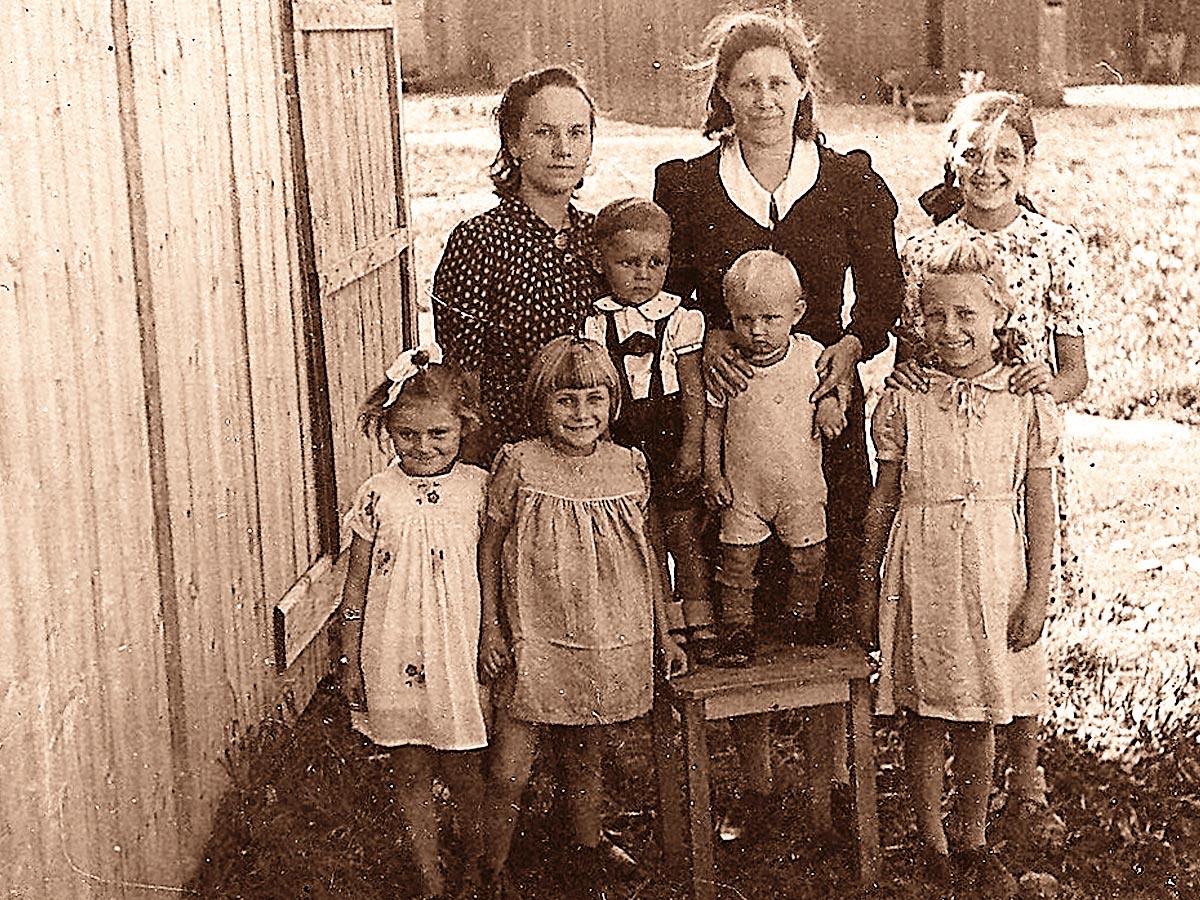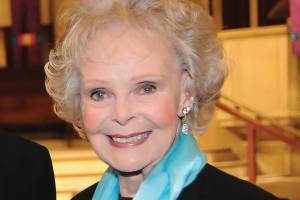It has been 76 years since the Nazi concentration camps were liberated at the end of WWII.
But for John Kunz, a retired Great Falls Realtor, the memory of the camps is fresh and personal and something he’s determined shouldn’t be forgotten.
That is because he was born in the Ramensthal, Germany concentration camp in 1944.
Prior to the Covid-19 pandemic, Kunz, an ethnic Pole who arrived in Montana in 1949, spoke to groups about his family’s immigration to Montana and the Nazi horrors, particularly the brutality toward the Jewish, and particularly, the non-Jewish Polish people alike.
His parents and four siblings came to the United States from the Amberg, Germany refugee camp where they were taken after Ramensthal closed. They were sponsored by St. John the Evangelist Catholic Church in Fairfield, after a four-year wait for resettlement.
“I am fortunate because if I hadn’t been born in that misery, I wouldn’t be here (in Montana),” he said. “There is not a day that goes by that I am not thankful for my life, my friends, and my opportunities in the USA and Great Falls, Montana.”
Kunz, who hopes to resume his talks post-pandemic, begins his talks with the friendly Polish greeting, Dzien Dobry (Good Day).
But his story is a grim reminder of inhumanity.
The Kunz family went from the concentration camp to living in a one-room wooden barracks in the refugee camp to the basement at the St. John’s annex, where they stayed for a year before coming to Great Falls.
The Kunzes were among some 30 Polish families sponsored by St. John’s, largely through the efforts of the parish priest, Rev. Russell Scheidler.
Kunz fears memory of the Holocaust is being lost.
“People think this could never happen again, but it could.”
People are unaware that some three million non-Jewish Polish civilians were murdered by the Nazis, in addition to six million Jews, in something he calls a “Forgotten Holocaust.”
Kunz didn’t broadcast his story growing up, not wanting to play the victim. “I wanted to be an American.”
When he arrived in the United States the only English he knew were the words to the song, “You are My Sunshine,” which he learned from a US soldier.
Kunz spoke strictly Polish at home.
The Kunz family odyssey began in 1942 when they were taken from their southeastern Polish town (now in Ukraine) and forced to work at Ramsenthal near Bayreuth.
His story requires a history lesson that he presents in photos of himself in the camps, along with his family.
Poland had been wiped off the map by Russia, Austria, and Prussia in three partitions in the late 18th Century. The country reappeared in 1918 after WWI, only to be attacked on Sept. 1, 1939 by the Nazis from the west, marking the beginning of World War II. Then the Soviets entered from the east 17 days later.
The Kunz family’s ancestral home had been where some of the biggest battles between the Russian and German armies occurred and where the Nazis later established death camps. A well-known camp was nearby Belzec.
“My parents talked of knowing its existence and purpose and the overpowering smell of burning bodies,” he said.
“In 1942, my family was removed from their farm by the German Nazis and watched the Germans slaughter their livestock and burn the farm as Germans retreated from the Russians,” he said. “The Germans did not want to leave anything behind that the Russians could use. My parents and older siblings, along with thousands of Poles, were shipped out of Poland to southern Germany by train in cattle cars to Nazi slave labor camps.”
His father and older brothers, 12 and 13 in 1942, were sent on farm, construction, and mining details. His mother sewed clothing for the Nazis.
“Food was limited to dry bread and at best a thin broth, usually of broccoli or turnips. For the rest of his life my father was not fond of broccoli and turnips,” Kunz said.
He was born in a barracks in that camp. There were no doctors, so his older sister Emelia, 10, assisted at his birth.
“She cared for me after, while my mother worked. Because of lack of food, my mother was not able to nurse me. They found another lady in the barracks that could. We all survived!”
While Kunz does not remember the concentration camp, he does recall the post-war Displaced Persons refugee camp, especially the gypsies, their horses and wagons, campfires, mandolins, and fiddles.
The conditions had been so bad in the refugee camp that when he reached Fairfield, he lapsed into a coma suffering from malnutrition and parasites and was nursed back to health in a Great Falls hospital.
They stayed in Fairfield, Mont., for a year because his mother, Agnes, cooked for the arriving Polish immigrants there. She died in 2003.
One of his mother’s proudest experiences, Kunz said, came in 1976 when she cooked Polish food for then-Cardinal Karol Wojtyla, the archbishop of Krakow, Poland who was visiting Msgr. Joseph Gluszek in Geyser, Mont., before Wojtyla was elected Pope John Paul II. Gluszek, who died at age 91 in 2002, had survived six years in the Dachau concentration camp.
John Sr., who died in 1993, found work as a maintenance man at Great Falls Central Catholic High School.
“Both of my parents lived a long full life in Great Falls after surviving the nightmare of World War II and the Nazi Concentration Camp,” said Kunz.
He graduated from Central, did a hitch in the Marines, lived in Newark, N.J. where his brothers had settled, and returned to Great Falls in 1972.
After working in automobile sales, he got into real estate, ultimately owning Coldwell Banker The Falls, which he sold in 2016. He and his wife, the former Colleen Kranzler, live part-time near Bigfork.
In 1974 Kunz visited Poland with his mother and younger sister. They found two of his mother’s surviving sisters.
“I was able to tell my father that seeing how my surviving family in Poland were living, that I truly appreciated being in the USA. He had made the right decision (by not going back to Poland after the war as his mother wanted).”
He visited a second time in 2019 and plans to return to Germany and Poland after the pandemic.
Kunz is the only surviving member of his family still in Montana.
“In my heart, this will always be home. The many friends and relationships that I acquired over the years are priceless,” he said. MSN
Tom Kotynski is a retired Great Falls Tribune associate editor and educator.








